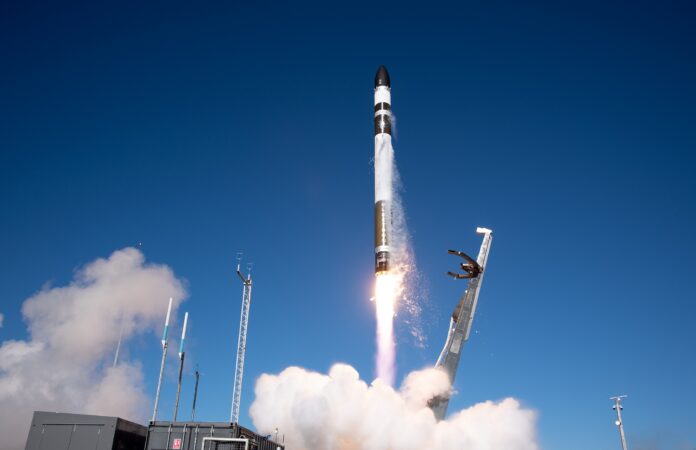Date: September 19, 2023
Mission Objectives: The Electron rocket carried the Acadia 2 Earth observation satellite for Capella Space. The mission goal was to place the satellite into a 500-kilometer low Earth orbit (LEO) where it would provide radar imaging capabilities. The satellite was designed to be used for a number of purposes, including commercial agriculture, government intelligence, and disaster assistance.
Sequence of Events
The Electron rocket launched from Rocket Lab Launch Complex 1 on Māhia Peninsula, New Zealand at 0655 GMT. The first stage performed normally and separated as planned. The second stage engine, the Rutherford engine, ignited and began to accelerate the rocket towards orbit.
However, about 2.5 minutes into the flight, the Rutherford engine unexpectedly shut down. The rocket and satellite lost all thrust and began to fall back towards Earth. The rocket and satellite were lost at sea.
Rocket Lab’s Response
Rocket Lab immediately launched an investigation into the failure. The company also notified the Federal Aviation Administration (FAA), which controls commercial spaceflight launches in the United States.
The investigation team included engineers from Rocket Lab, as well as independent experts. The team reviewed all of the available data, including telemetry data from the rocket, video footage of the launch, and physical evidence from the rocket.
ALSO READ: NASA’s New “Spot the Station” Mobile App Makes It Easier Than Ever to Track the ISS
Investigation Findings
The investigation found that the failure was likely caused by an electrical arc in the second stage of the Electron rocket. An electrical arc is a sudden surge in voltage or current that can damage electrical components.
The specific component where the electrical arc occurred has not been publicly disclosed. However, Rocket Lab CEO Peter Beck has said that the company has identified the component and has made design changes to prevent it from happening again.
Beck has also said that the electrical arc likely caused a disruption in the signals used by the second stage thrust vector control system. The thrust vector control system is responsible for controlling the direction of the rocket’s thrust. When the arc occurred, it disrupted the signals used by the system, which caused the engine to shut down.
Potential Implications
The failure of the Electron rocket is a setback for Rocket Lab, which is a leading provider of small satellite launch services. The company has grounded its Electron rockets until the investigation is complete and corrective actions have been taken.
The failure also has potential implications for the space industry as a whole. Electrical arcs are a rare but serious cause of failure in rockets and other spacecraft. The investigation into the Electron rocket failure could lead to new insights and safety measures to prevent similar incidents in the future.
How Rocket Lab Plans to Prevent Similar Incidents
Rocket Lab has made design changes to the component where the electrical arc occurred. The company is also testing all of its Electron rockets to ensure that they are safe to fly.
Rocket Lab is also working to improve its quality control and testing procedures.
Technical Details Surrounding the Electrical Arc
Electrical arcs can be caused by a variety of factors, including faulty wiring, corrosion, or physical damage. In the case of the Electron rocket, it is not yet clear what caused the electrical arc.
However, it is possible that the arc was caused by a component failure in the second stage power supply system. The power supply system provides electricity to the second stage engine and other components.
If the electrical arc occurred in the power supply system, it could have caused a disruption in the signals used by the second stage engine control system. This could have caused the engine to shut down unexpectedly.
ALSO READ :How Astronomers Determine the Ages of Planets and Stars
Conclusion
The failure of the Electron rocket is a significant setback for Rocket Lab. The company has lost a valuable satellite customer and has incurred significant financial losses.
However, Rocket Lab is committed to safety and is working to prevent similar incidents from happening in the future. The company has made design changes to its Electron rocket and is improving its quality control and testing procedures.
Rocket Lab is also working with the FAA to develop new safety measures for the space industry as a whole. The investigation into the Electron rocket failure is ongoing, but the preliminary findings suggest that the failure was likely caused by an electrical arc.
Rocket Lab is expected to resume launches in early 2024.
What do you think caused the electron arc, comment your thoughts in the comment section.
